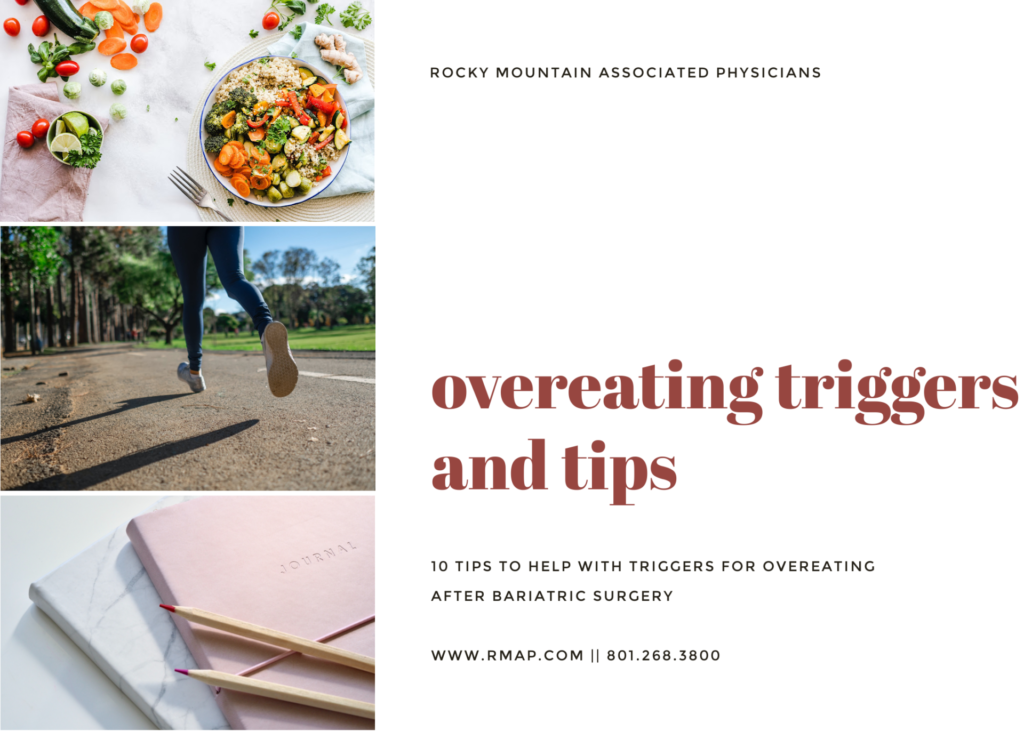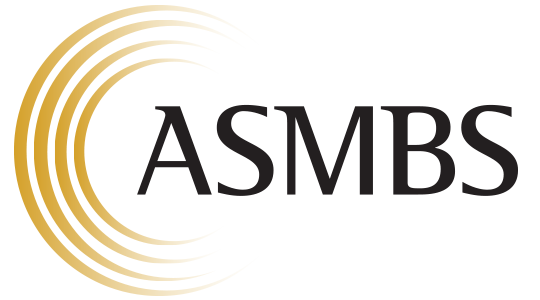
Learn more about weight loss surgery at Rocky Mountain Associated Physicians www.RMAP.com (801) 268-3800
After bariatric surgery, it takes effort, persistence, and discipline to lose the weight and maintain that weight loss. You have to be willing to put forth the effort to make healthy decisions and choices, to say “no” to those tempting sugar-filled foods and tasty treats. It is a lifetime change, and it will take daily persistence to not “give in” to old habits and behaviors.
Knowingly or unknowingly, many people are simultaneously dealing with two chronic, potentially fatal diseases: the disease of obesity and disease of addiction. Both diseases affect every area of a person’s life and can leave a person feeling powerless and out of control.
Everybody manages stress differently; unfortunately, the majority of us carry stress-filled lives. We all seek distractions from stress and pain. In a 2013 survey by American Psychological Association (APA), 38% of American adults overeat due to stress. Of them, half say they overeat at least once a week.1
Bariatric surgery is merely a powerful tool to help with weight loss. Identifying your personal triggers for overeating is the first step toward changing your mindset and habits to keep the weight off and maintain your health.
Modifying Eating Habits
There are numerous reasons why you might find yourself reaching for food. It could be due to emotional reasons, boredom, head hunger—where you “think” you’re hungry, but actually not, or actual hunger due to not filling up on the right kinds of food. The following are tips to help with modifying old habits and having more mindful eating practices.
- Don’t Skip Meals: When you skip a meal, you can find yourself hungrier later in the day, which could then make you more likely to choose poor food choices or overeat. You have probably heard the saying “breakfast is the most important meal of the day.” Breakfast turns your metabolism on and kick-starts the function of your energy supply.
Breakfast Ideas:
| Deli meat with melted cheese on top |
| Scrambled egg, grated cheese, cooked mild tomato salsa |
| Low-fat low-sugar yogurt |
| Poached eggs, canned tomatoes |
- Snack Time: If you’re eating at regular intervals throughout the day and still find yourself eating, stop and ask yourself if you truly are hungry. Remember that the “hunger sensation” may also be due to a lack of water. If you still find your stomach growling, it’s okay to reach for a protein-dense snack. Appropriate snacking (only twice a day) can help boost your metabolism and keep your energy levels high.
- Change of Scenery: Eating in front of a television trains our minds to think about eating food every time we sit down to watch something. It can also distract you from realizing to stop eating because you’re full. Sit at a table and focus on the food and your feeling of fullness.
- Chew, Chew, Chew: It could take 20-30 minutes for your brain to get the message that you are full. Slow down, and chew your food well. Chewing about 30 times before you swallow allows you to pace yourself. Use a small plate, eat slowly, and put your utensils down between bites. Try to resist the urge to clean your plate completely if you start to feel full.
- Journaling and Tracking: Keeping track of your food may help you notice patterns in your habits. Try starting a journal or using an app like MyFitnessPal or Baritastic to record your food and beverage intake. You may have emotional or environmental triggers for overeating. Are you hungry, bored, frustrated, angry, happy or sad? Documenting your emotions to identify your areas of weakness can be very beneficial and can help you develop new strategies for health.
- Meal Plan: It’s well-known that restaurant portions are very large. If you ate out regularly, you could have been overeating without really realizing it. Plan your meals out in advance to avoid dining out when you think you have “nothing to eat.” Save dining out for special occasions, and remember, you can take leftovers home! You don’t have to eat everything on your plate.
- Drink More Water: We can’t stress enough how important drinking water and staying hydrated is. You should be drinking a minimum of 64 ounces of water each day. Dehydration can also make you think you’re hungry when really all you need is a drink of water.
- 70/30 Rule: Your meals and snacks should be following the 70/30 rule; 70% protein-dense foods and 30% vegetables. Avoid any simple carbohydrates and sugars as they can slow weight loss, stop or interfere with maintenance, and if you had the Gastric Bypass, they could induce the “dumping syndrome.” You want to ask yourself what the food item you are going to eat is going to do for your body. What is the nutritional value? Does it provide you with what you need? Does this item contribute to the 70/30 rule?
- Measure Your Food: Bariatric patients should never consume more than 1 cup (8 ounces) at any meal. You should be consuming 2-4 ounce meals. This should be measured in volume, not weight. If you have questions about what you should be eating and when, please review the big blue binder that was given to you at your Surgery Orientation Class prior to surgery as to what stage you are in. If you still have questions or are unsure, please call us at (801) 268-3800.
| ¼ cup = 2 ounces | ½ cup = 4 ounces | 1 cup = 8 ounces |
| 4 tbsp. = 2 ounces | 8 tbsp. = 4 ounces | 16 tbsp. = 8 ounces |
- Bye-Bye Carbonation and Caffeine: Most carbonated drinks are high in sugar and caffeine, which can interfere with your long-term weight loss. Carbonation distends even normal size stomachs and delays the sensation of fullness. Caffeine can be an appetite stimulant, a known diuretic, and can cause gastric distress. Our surgeons recommend staying away from carbonation and caffeine for these reasons.
You won’t ever have the opportunity to relive the first rapid weight loss months again. Dedicate yourself to staying within the guidelines we set out for you from the start and develop the habits that support long-term success that can last a life time.
Links to related articles:
What is “Junk Food?”
Hunger Between Meals
Strategies and Skills for Success
www.RMAP.com
Rocky Mountain Associated Physicians
801-268-3800
1160 East 3900 South, Suite 4100
SLC, UT 84124
- org/news/press/releases/stress/2013/eating (American Psychological Association (APA))













 Address: 1521 East 3900 South STE 100
Address: 1521 East 3900 South STE 100 Office: +
Office: +  Fax number (801) 268-3997
Fax number (801) 268-3997 Email: info@rmapinc.com
Email: info@rmapinc.com



